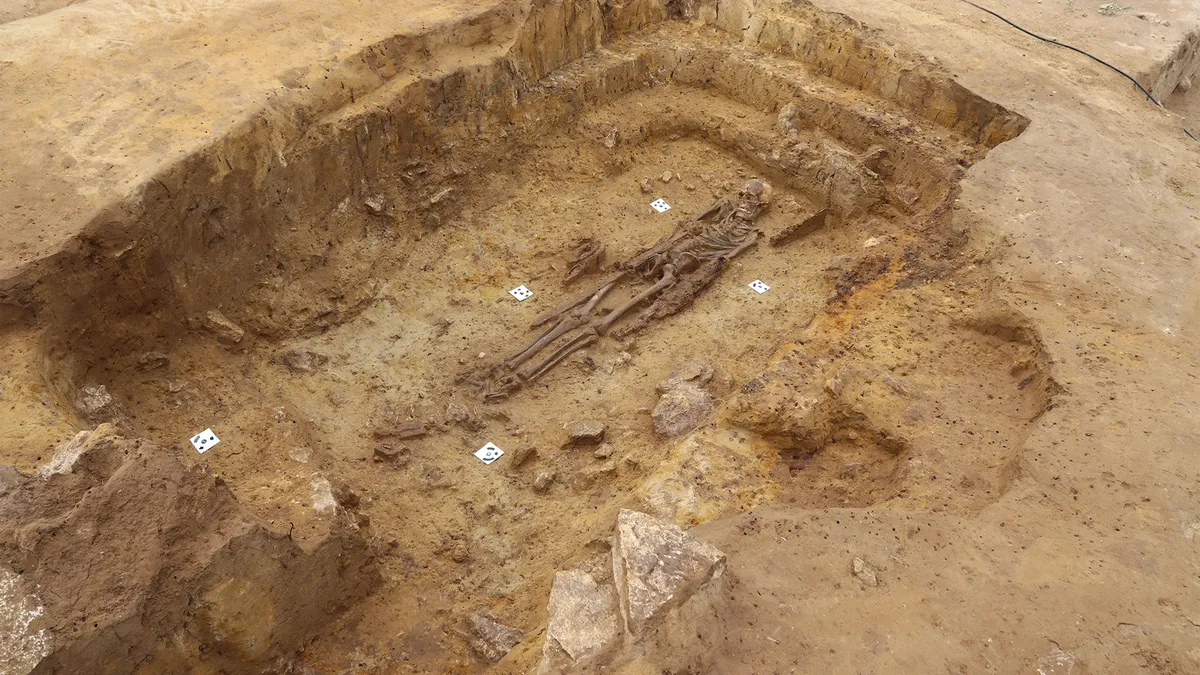
The warrior's grave was found at an early medieval cemetery in the German town of Ingelheim, which was later the site of one of Charlemagne's palaces.
(Image credit: Kaiserpfalz Research Center, Ingelheim)
(Image credit: Kaiserpfalz Research Center, Ingelheim)
Archaeologists in Germany have discovered the grave of a Frankish warrior who was buried with his weapons and shield more than 1,300 years ago.
The weapons include a spatha, a long sword based on cavalry swords of the late Roman Empire.
The deceased appears to be a man who died between the ages of 30 and 40, probably in the seventh century, the archaeologists found.
The warrior was also buried with a short sword for slashing, called a seax, with an iron blade and a bronze handle; a heavy iron knife; and a spear, of which only the iron point survived. The remains of a shield made mainly of wood were also found; only the metal "boss" at the center survived.
The team found the grave in June during a dig at an early medieval cemetery that archaeologists have been excavating since March. The site is in the town of Ingelheim, which lies beside the Rhine River and about 25 miles (40 kilometers) west of Frankfurt.
Read the rest of this article...
No comments:
Post a Comment